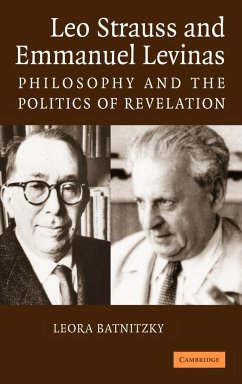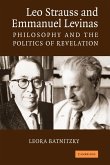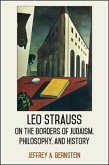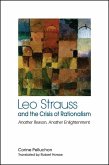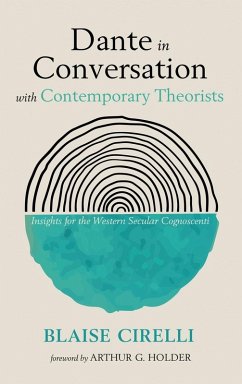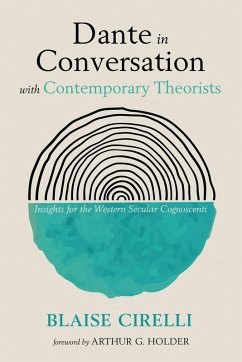Leora Batnitzky brings together two seemingly incongruous contemporaries, demonstrating that their projects had many parallels.
Leo Strauss and Emmanuel Levinas, two twentieth-century Jewish philosophers and two extremely provocative thinkers whose reputations have grown considerably over the last twenty years, are rarely studied together. This is due to the disparate interests of many of their intellectual heirs. Strauss has influenced political theorists and policy makers on the right while Levinas has been championed in the humanities by different cadres associated with postmodernist thought. In Leo Strauss and Emmanuel Levinas: Philosophy and the Politics of Revelation, Leora Batnitzky brings together these two seemingly incongruous contemporaries, demonstrating that they often had the same philosophical sources and their projects had many formal parallels. While such a comparison is valuable in itself for better understanding each figure, it also raises profound questions in the current debate on the definitions of 'religion', suggesting new ways that religion makes claims on both philosophy and politics.
Review quote:
'This book is brilliant, scholarly, and provocative. It combines with rare success philosophical acumen, historical learning, and an exciting thesis. Leo Strauss and Emmanuel Levinas: Philosophy and the Politics of Revelation is a major work of theology by one of the premier thinkers in religious philosophy of the day, writing at the very highest level of commentary, having produced a book with potential to resonate in a wide variety of fields, with critical implications (most drawn by the author herself) for thinking about major figures, schools, and discussions, executed with exemplary erudition.' Samuel Moyn, Columbia University
'Leo Strauss and Emmanuel Levinas: Philosophy and the Politics of Revelation is an original work of engagement of these two important thinkers that takes us far beyond what most of their admirers and detractors have written about their thought. Leora Batnitzky is a critical scholar and thinker in a class by herself.' David Novak, University of Toronto
Table of contents:
Part I. Philosophy: 1. Introduction: Strauss and Levinas between Athens and Jerusalem; 2. Levinas's defense of modern philosophy: how Strauss might respond; Part II. Revelation: 3. 'Freedom depends upon its bondage': The shared debt to Franz Rosenzweig; 4. An irrationalist rationalism: Levinas's Transformation of Hermann Cohen; 5. The possibility of pre-modern Rationalism: Strauss's Transformation of Hermann Cohen; Part III. Politics: 6. Against Utopia: law and its limits; 7. Zionism and the discovery of prophetic politics; 8. Politics and Hermeneutics: Strauss's and Levinas's retrieval of classical Jewish sources; 9. Revelation and commandment.
Hinweis: Dieser Artikel kann nur an eine deutsche Lieferadresse ausgeliefert werden.
Leo Strauss and Emmanuel Levinas, two twentieth-century Jewish philosophers and two extremely provocative thinkers whose reputations have grown considerably over the last twenty years, are rarely studied together. This is due to the disparate interests of many of their intellectual heirs. Strauss has influenced political theorists and policy makers on the right while Levinas has been championed in the humanities by different cadres associated with postmodernist thought. In Leo Strauss and Emmanuel Levinas: Philosophy and the Politics of Revelation, Leora Batnitzky brings together these two seemingly incongruous contemporaries, demonstrating that they often had the same philosophical sources and their projects had many formal parallels. While such a comparison is valuable in itself for better understanding each figure, it also raises profound questions in the current debate on the definitions of 'religion', suggesting new ways that religion makes claims on both philosophy and politics.
Review quote:
'This book is brilliant, scholarly, and provocative. It combines with rare success philosophical acumen, historical learning, and an exciting thesis. Leo Strauss and Emmanuel Levinas: Philosophy and the Politics of Revelation is a major work of theology by one of the premier thinkers in religious philosophy of the day, writing at the very highest level of commentary, having produced a book with potential to resonate in a wide variety of fields, with critical implications (most drawn by the author herself) for thinking about major figures, schools, and discussions, executed with exemplary erudition.' Samuel Moyn, Columbia University
'Leo Strauss and Emmanuel Levinas: Philosophy and the Politics of Revelation is an original work of engagement of these two important thinkers that takes us far beyond what most of their admirers and detractors have written about their thought. Leora Batnitzky is a critical scholar and thinker in a class by herself.' David Novak, University of Toronto
Table of contents:
Part I. Philosophy: 1. Introduction: Strauss and Levinas between Athens and Jerusalem; 2. Levinas's defense of modern philosophy: how Strauss might respond; Part II. Revelation: 3. 'Freedom depends upon its bondage': The shared debt to Franz Rosenzweig; 4. An irrationalist rationalism: Levinas's Transformation of Hermann Cohen; 5. The possibility of pre-modern Rationalism: Strauss's Transformation of Hermann Cohen; Part III. Politics: 6. Against Utopia: law and its limits; 7. Zionism and the discovery of prophetic politics; 8. Politics and Hermeneutics: Strauss's and Levinas's retrieval of classical Jewish sources; 9. Revelation and commandment.
Hinweis: Dieser Artikel kann nur an eine deutsche Lieferadresse ausgeliefert werden.

